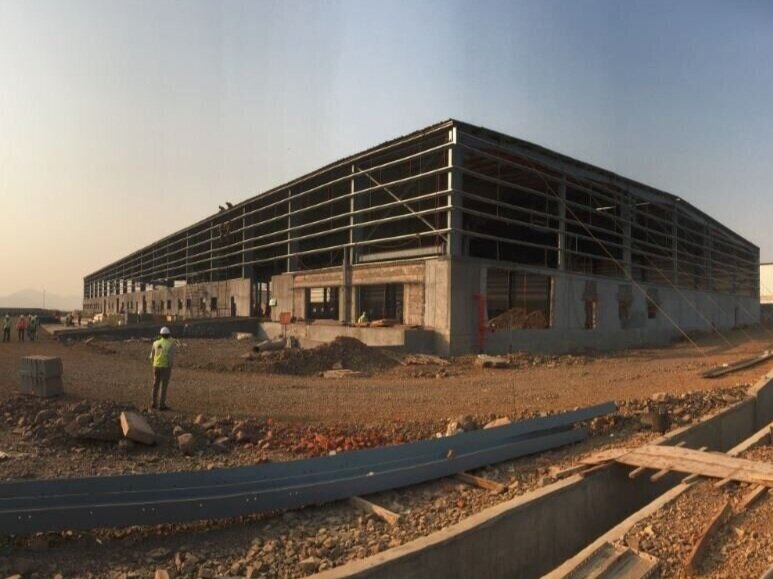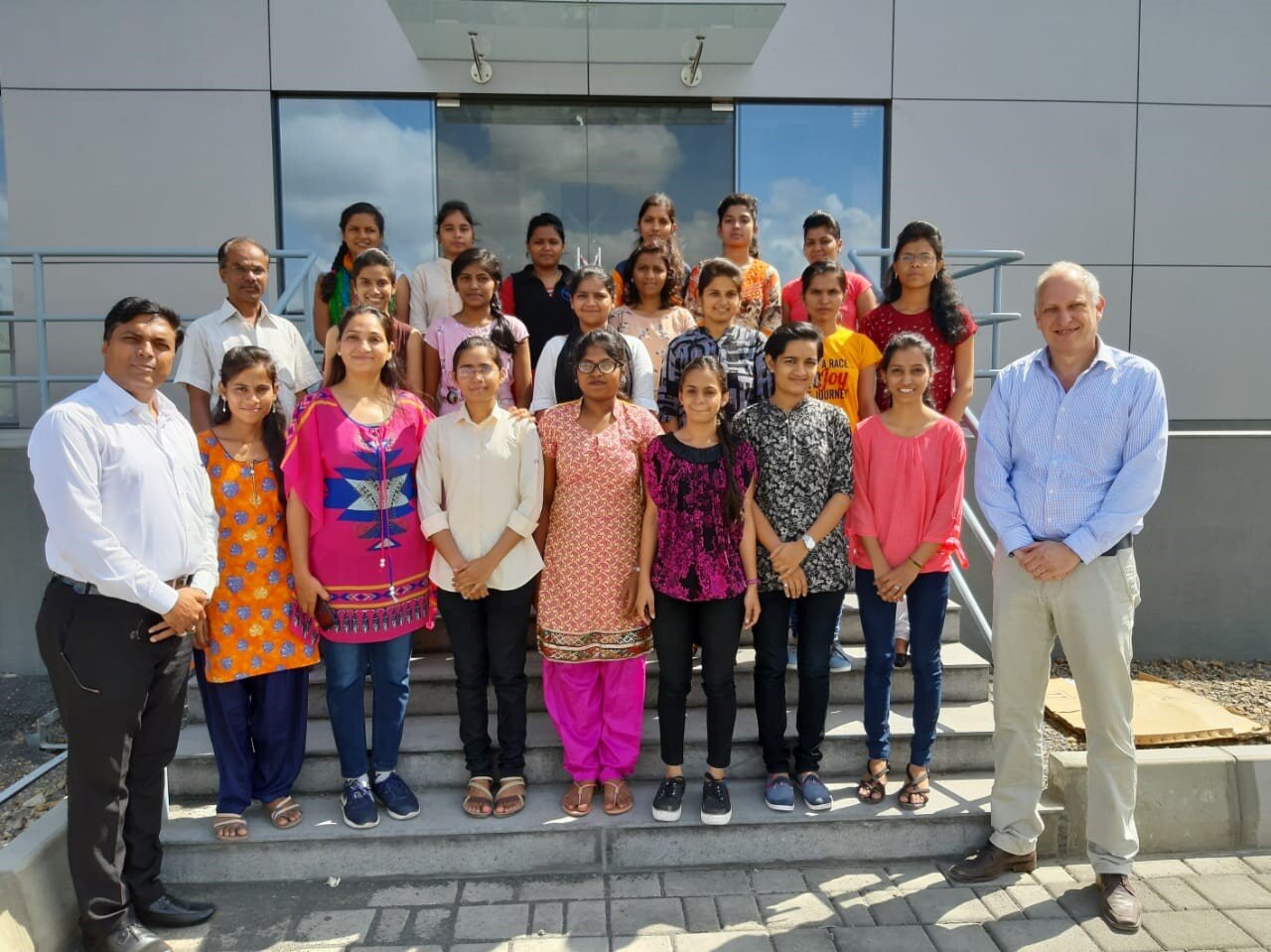While Fokker Elmo's factory in China had to close several times due to corona measures, the Indian factory of the Dutch manufacturer of aircraft wiring systems continues to operate as usual. A few years ago, Fokker Elmo chose to spread risk: no factory expansion in China, but a new factory in India. "In India we found not only a large supply of better trained personnel, but also lower labor costs than in China," says Maarten Durville, director of the Indian production hub.
Fokker Elmo factory in India under construction
"If as a company you have the luxury of spreading risks, you have to do that," Maarten explains. "We would be in a quandary now if we had only bet on China." The Fokker Elmo plant in China had to close several times in recent pandemic years. According to Maarten, the aerospace company's other factories cannot take that hit directly. "But it makes you less vulnerable as a manufacturer if you are in several places around the world. In addition, India also offers us opportunities that we don't have in China."
India's aviation sector is growing like a coalition. Not only the commercial sector, but also the defence arsenal is expanding considerably. "By opening a factory in India, we are offering our customers an interesting combination: good products at a competitive price and the opportunity to do a deal with the Indian government." There has been speculation for some time about the possible purchase of Boeing's Super Hornet Fighter by the Indian government. "And they want something in return for such a large purchase. Boeing can then say: 'Look, we are building in India through Fokker Elmo and thus also creating jobs in India. So that makes us an extra attractive partner for Boeing."
Local support
The plant in India has been operating for a few years now, but did experience some start-up problems. "We had two major delays, one was internal and the other had to do with getting permits. That takes an incredibly long time in India." Maarten had support from an Indian project manager during the set-up, and even though there is a lot of knowledge at Fokker Elmo about starting a plant abroad, that help was much needed. "I couldn't have done it without him. It was all so much work: from property registration to obtaining the license for operation. Indians are extreme on the comma."
But an Indian project manager alone was not enough to get everything running. "For all corporate reporting we work with local accountants and for the recruitment of the right employees we have Indian consultants in our team". At the moment, Maarten manages about 40 people, which should grow to 800 in about five years. And they will have to be able to participate in the hybrid, international business culture that Maarten is shaping within the company. "I would like to retain the Indian ambition and enthusiasm, but I am replacing the hierarchy with Dutch openness, so that everyone can freely contribute their ideas and dare to voice criticism.
Director Maarten Durville and his team in front of the Fokker Elmo factory in India
Business culture in India
Maarten cultivates openness in various ways. For example, he holds a monthly session with the management in which the values of Fokker Elmo are discussed. Everyone who participates must then give good and bad examples of the open corporate culture. "Personally, I like the introduction of our joint lunch," says Maarten. "When I started, I suggested we all have lunch together, at a long table. So the managers, engineers, operators, all mixed up together and next to each other. That's not at all common in India and I got very different reactions." It was mainly his young employees, under 35, who thought it was a terribly nice idea. The more senior employees had to get used to this Dutch initiative. "And then there was the group who immediately said: 'We'll get the cleaners! Not to join them for dinner, but to clear the tables. I explained to them that we could do that ourselves.
Maarten is very pleased with the quality of his staff. "I heard a lot of stories before I left for India. That there would be a lack of knowledge and dedication among employees, but I see just the opposite. They dare to take ownership for their successes, but also for their mistakes. I hardly come across that outside my team in India." When working with local parties and contractors, Maarten regularly runs into the same problem. "Here, they often give you the answer you want to hear. For example, during the construction of the factory I was often told by contractors that a certain task would take about three weeks, but in reality it would take six. If they told me the truth, I could come up with a solution, but the delay would be glossed over. Fortunately, my team has learned from that."
Recruiting talent in India
The local HR consultants recruit the team with the utmost care. "We do a lot of campus recruitment, and we also try to enthuse as many women as possible to come and have an interview with us. It is a tough job, especially when you are looking for women with a technical background, but we have some very good ones in our team at the moment. Now the question is whether they will also stay with us when they get married." Maarten hopes that the good terms of employment that Fokker Elmo offers can keep them on board. But the factory has also applied for a subsidy from the regional government. "We are trying to get a subsidy to train and employ more women in the company, but it is not yet clear when we can start. The process takes a long time."
It wasn't possible to just submit some forms to have Fokker Elmo compete for the regional pot. "I really learned that you have to go out there. The best thing is not to make an appointment at all, but to just walk into a regional ministry at random and see if you can get a hold of the person responsible. This has helped me a lot so far, this personal contact opens doors that would otherwise remain closed. My project manager said to me for a reason: 'Maarten, a no is not the end'.


